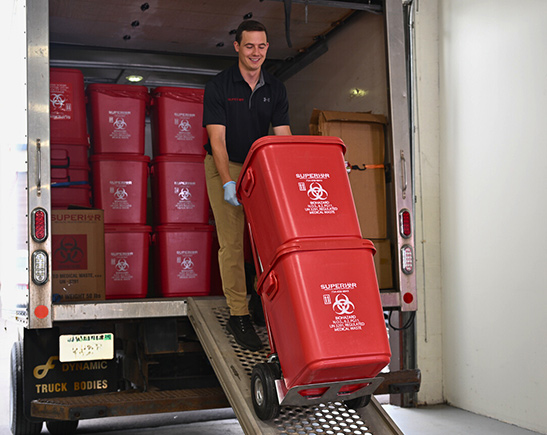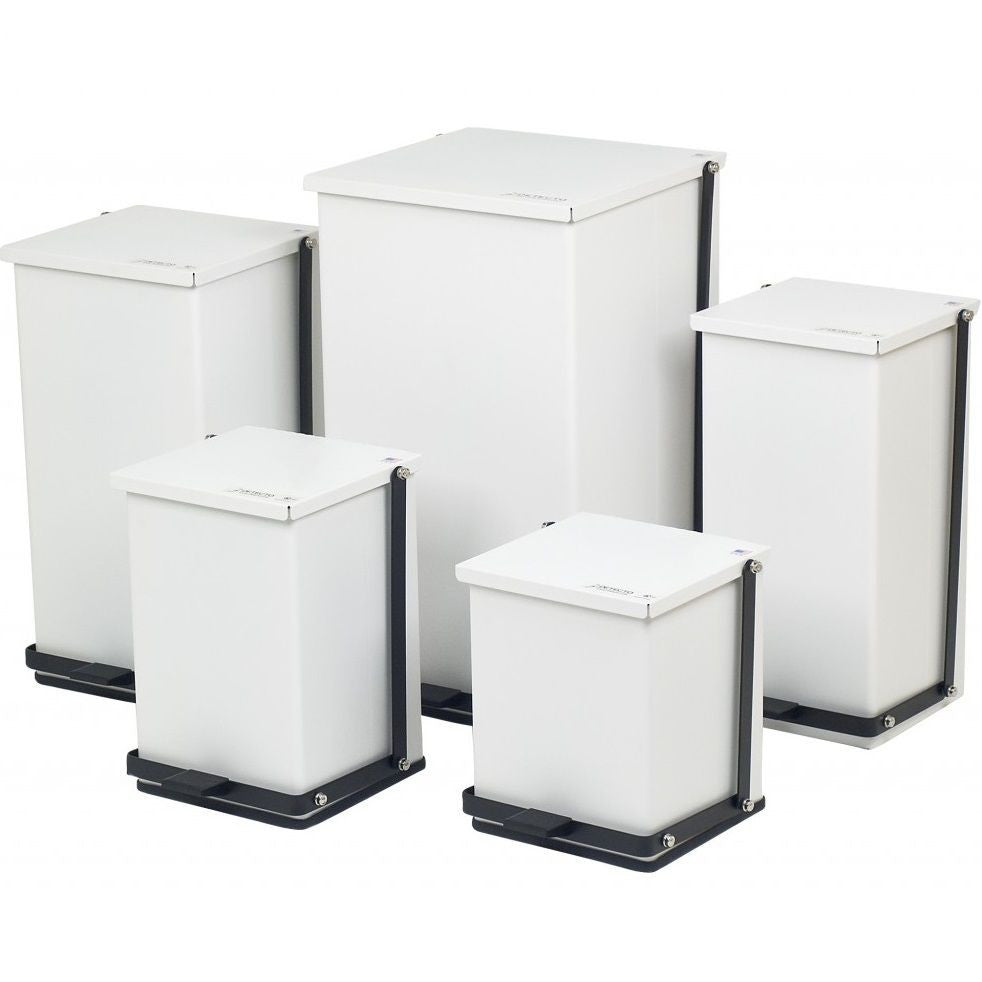Defending Wellness: Introducing the Significance of Expert Medical Waste Removal
Defending Wellness: Introducing the Significance of Expert Medical Waste Removal
Blog Article
Stay Ahead of Regulations: Expert Suggestions on Medical Garbage Disposal
In a world where the medical care industry is regularly progressing, it is important for medical centers to remain ahead of regulations when it comes to the appropriate disposal of clinical waste. From understanding the various classifications of clinical waste to implementing the best collection and partition techniques, this discussion will certainly supply workable suggestions and useful understandings to aid centers stay in advance of guidelines in the ever-changing landscape of medical waste disposal.
Comprehending Clinical Waste Categories
Comprehending medical waste categories is crucial for appropriate disposal and monitoring in medical care centers. Medical waste refers to any type of waste generated by medical care tasks that may position a threat to public health and wellness or the environment. It is critical to categorize clinical waste precisely to guarantee its safe handling, disposal, transport, and treatment.
There are numerous categories of clinical waste that health care centers require to be accustomed to. One of the most typical categories consist of transmittable waste, pathological waste, sharps waste, pharmaceutical waste, and chemical waste. Each classification has specific guidelines and guidelines for its appropriate management and disposal.
Transmittable waste includes products infected with blood or other bodily fluids, such as handwear covers, dress, and research laboratory cultures. Pathological waste refers to human tissues, organs, or body parts that require special delivery and disposal. Sharps waste includes used needles, syringes, and various other sharp items that can create injury and transfer infections. Drug waste makes up run out, extra, or infected medications that need careful handling and disposal. Finally, chemical waste consists of solvents, anti-bacterials, and other chemical compounds utilized in health care centers.
Remaining Up-To-Date With Regulatory Changes
Staying current with regulative changes is important for medical care facilities to guarantee compliance and appropriate administration of medical garbage disposal. medical waste removal. With guidelines continuously evolving, it is essential for medical care centers to remain up-to-date to stay clear of fines, fines, and prospective injury to the environment and public health and wellness
To remain in advance of governing modifications, healthcare centers should establish a system for monitoring and monitoring updates. This can be done by registering for regulatory newsletters, going to seminars and workshops, and proactively taking part in sector associations. Furthermore, facilities should designate a team member or group responsible for staying educated and disseminating info to pertinent stakeholders.
Normal interaction with governing agencies is additionally important. Health care facilities should establish relationships with neighborhood, state, and federal companies to guarantee they know any type of changes in policies that might impact their waste monitoring techniques. This can be done through normal meetings, involvement in public comment periods, and positive involvement with regulatory companies.
Moreover, healthcare facilities ought to think about partnering with waste administration firms that concentrate on clinical waste disposal (medical waste disposal services with WasteX). These companies are often skilled in the most recent policies and can supply assistance and support to make certain compliance
Implementing Correct Collection and Segregation Approaches
To successfully manage clinical garbage disposal, healthcare centers must establish proper collection and partition techniques based on governing guidelines. Implementing these approaches makes sure the risk-free handling and disposal of potentially hazardous materials, secures the atmosphere, and lessens the danger of infections and injuries to health care workers and the public.
Proper collection and segregation approaches entail using designated containers and labeling systems. Medical care centers should offer plainly labeled containers for various sorts of medical waste, such as sharps, infectious waste, pharmaceutical waste, and non-hazardous waste. These containers need to be color-coded and clearly marked to prevent complication and promote easy identification.
Furthermore, health care centers need to train their team on the right procedures for collecting and setting apart clinical waste. This consists of educating them on the different types of waste, the appropriate containers to use, and the relevance of adhering to policies and guidelines. Regular training sessions and refresher courses should be conducted to guarantee that staff members stay up-to-date on finest methods.
Furthermore, medical care facilities must establish a system for normal collection and disposal of clinical waste. This might entail partnering medical waste disposal services with WasteX with licensed waste administration business that focus on clinical waste disposal. These firms will certainly guarantee that the gathered waste is transferred and dealt with in compliance with regulative needs.
Selecting the Right Disposal Methods

Incineration is just one of the most efficient and usual techniques for throwing away specific sorts of clinical waste, such as pathological waste and sharps. It entails the controlled burning of waste at heats, minimizing it to ash. Nonetheless, incineration can launch damaging contaminants into the air and add to air pollution.

Chemical therapy includes the use of chemicals to counteract the waste and sanitize. Microwave treatment utilizes microwave energy to warm and disinfect the waste.
Making Certain Conformity With Documentation and Training
After meticulously thinking about the proper disposal approaches for medical waste, health care facilities should guarantee conformity with policies and minimize environmental effect by carrying out effective documentation and training procedures. This action is crucial in preserving a lasting and safe setting for both healthcare workers and the basic public.

Healthcare employees that take care of clinical waste must receive proper training on waste partition, handling, and disposal procedures. By offering extensive training, medical care facilities can empower their team to make educated choices and minimize the danger of inappropriate waste disposal.
Final Thought
To conclude, staying in advance of policies in clinical waste disposal is important for health care centers. medical waste removal service. Understanding the various classifications of medical waste, remaining upgraded with regulatory modifications, applying appropriate collection and segregation approaches, choosing the appropriate disposal methods, and ensuring conformity through paperwork and training are all crucial steps. By following these standards, healthcare companies can efficiently take care of and get rid of of clinical waste in a liable and safe fashion
From understanding the various categories of medical waste to executing the best collection and segregation approaches, this conversation will provide useful insights and workable ideas to assist facilities remain in advance of regulations in the ever-changing landscape of medical waste disposal. - medical waste disposal services with WasteX
The most usual groups consist of transmittable waste, pathological waste, sharps waste, pharmaceutical waste, and chemical waste. Medical care facilities must provide clearly identified containers for different types of clinical waste, such as sharps, contagious waste, pharmaceutical waste, and non-hazardous waste. Medical care centers must establish a detailed system to tape and track all facets of clinical waste disposal, consisting of types of waste produced, quantities, and medical waste disposal services with WasteX disposal approaches made use of. Medical care employees that take care of clinical waste must get proper training on waste segregation, dealing with, and disposal procedures.
Report this page